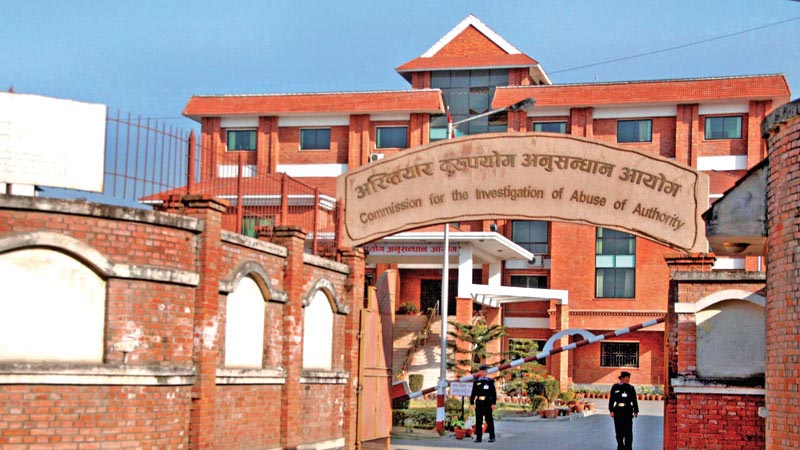CIAA to probe security press kickback case
Kathmandu, February 23
The Commission for the Investigation of Abuse of Authority today launched investigation into the audiotape scandal involving former minister of communications and information technology Gokul Prasad Baskota after the anti-graft body received two separate complaints.
Baskota resigned from his post on Thursday after the release of the audiotape in which he is heard negotiating kickback with a Swiss equipment supplier in the government’s security printing press procurement deal.
The first complaint was filed jointly by Pritam Subedi of Sunsari and Bijay Babu Siwakoti from Dolakha. The second complaint was filed jointly by Prem Bahadur Shahi of Nepalgunj and Ananda Ram Paudel of Hetauda. Subedi and Siwakoti have filed complaint against Baskota and Prime Minister KP Sharma Oli, whereas Shahi and Paudel have named Oli, Baskota, former secretary Mahendra Bahadur Gurung and Nepal Security Press CEO Bikal Paudel.
CIAA Spokesperson Pradeep Kumar Koirala acknowledged the receipt of the two complaints. He, however, neither disclosed the details of the complaints nor said whether the CIAA would arrest the accused.
“At this point of time, I can only tell you that the CIAA has received two complaints and that the anti-graft body has launched an investigation,” he said.
The complainants have sought CIAA investigation against Baskota as per Section 3 (1) and (4), and Section 24 of the Prevention of Corruption Act-2002.
Section 3(1) of the act is related to a public servant accepting or agreeing to accept bribe. Clause I of the section states that if the amount is more than Rs 10 million, the imprisonment term will be eight to ten years.
Section 3(4) relates to the person offering bribe and quantum of punishment if convicted.
Section 24 of the act is related to a minister involved in graft.
The complainants have also sought investigation against PM Oli as per Section 44 of the act. They have alleged that Oli was aware of the scandal before it came to light and it was his responsibility to assign the authorities concerned to initiate investigation.
Section 44 of the act states that if the PM receives information that corruption has been committed at his/her office or any other office under him/her, s/he should
immediately take the related documents in his custody and forward them to the investigating authority if after preliminary investigation s/he sees reason for ‘commission of corruption’.






